Essential Water Heater Maintenance Tips for West Monroe
Taking care of your water heater is important to ensure it lasts longer and works well. By following some basic maintenance tips, you can keep your appliance in good shape and enjoy hot water whenever you need it. This article provides valuable insights on how to maintain your water heater, helping you save money and have a reliable appliance.

Check your water heater pressure
If you've noticed a decrease in your water heater's pressure, it's essential to address the problem promptly to ensure your hot water needs are met adequately. One of the first things you should do is to check the water heater's pressure. This can be done by following a few simple steps. First, locate the pressure relief valve on your water heater. It is typically located on the top or side of the unit and has a lever or a handle. Be careful when handling the valve, as the water inside may be hot. To check the pressure, turn off the power supply to the water heater. This can be done by switching off the breaker or turning off the gas supply, depending on the type of heater you have. Once the power is off, pull up the lever on the pressure relief valve. You should hear a rush of air or see water coming out of the valve. If nothing happens or the pressure seems low, it may be an indication that the pressure relief valve is malfunctioning or there is a blockage in the water line. If the pressure relief valve is working correctly, you can move on to checking other possible causes of low pressure. These can include sediment buildup in the tank, a faulty pressure regulator, or a malfunctioning water supply valve. In some cases, the issue may be related to the overall water supply system of your property. To address these issues, it is often advisable to seek the assistance of a professional plumber experienced in water heater repairs and replacements. They will have the knowledge and expertise to diagnose the exact cause of the low pressure and recommend the necessary solutions. In some cases, water heater replacement may be the most practical and cost-effective option, especially if your unit is old and has been experiencing frequent issues.


Regularly inspect your water heater for corrosion, rust and leaks
Regular inspections should be conducted to identify any signs of corrosion, rust, or leaks that may result in the need for upgrading your water heater. Corrosion can occur due to certain minerals or chemicals present in your water supply. Over time, it can cause damage to the interior of your water heater, leading to leaks and reduced efficiency. Hence, it is important to inspect the tank, pipes, and fittings for any signs of corrosion. If you notice any discoloration or flaking on the surfaces or a metallic odor in your hot water, it may indicate corrosion. Rust is another common issue that can plague water heaters, especially those made of steel. Rust can weaken the tank, leading to cracks or leaks. Inspect the exterior of your water heater for any visible signs of rust, such as reddish-brown stains or blistering paint. Additionally, check the anode rod, which is designed to attract corrosive elements and protect the tank from rusting. If the anode rod is heavily corroded or depleted, it may be time for a replacement. Leakage is a serious concern as it can cause water damage to your home and increase energy bills. Inspect all the connections, valves, and pipes for any signs of leaks, including puddles, dripping, or dampness. Be sure to also check the temperature and pressure relief valve, as a malfunctioning valve can lead to leaks or even a dangerous increase in pressure within the tank.
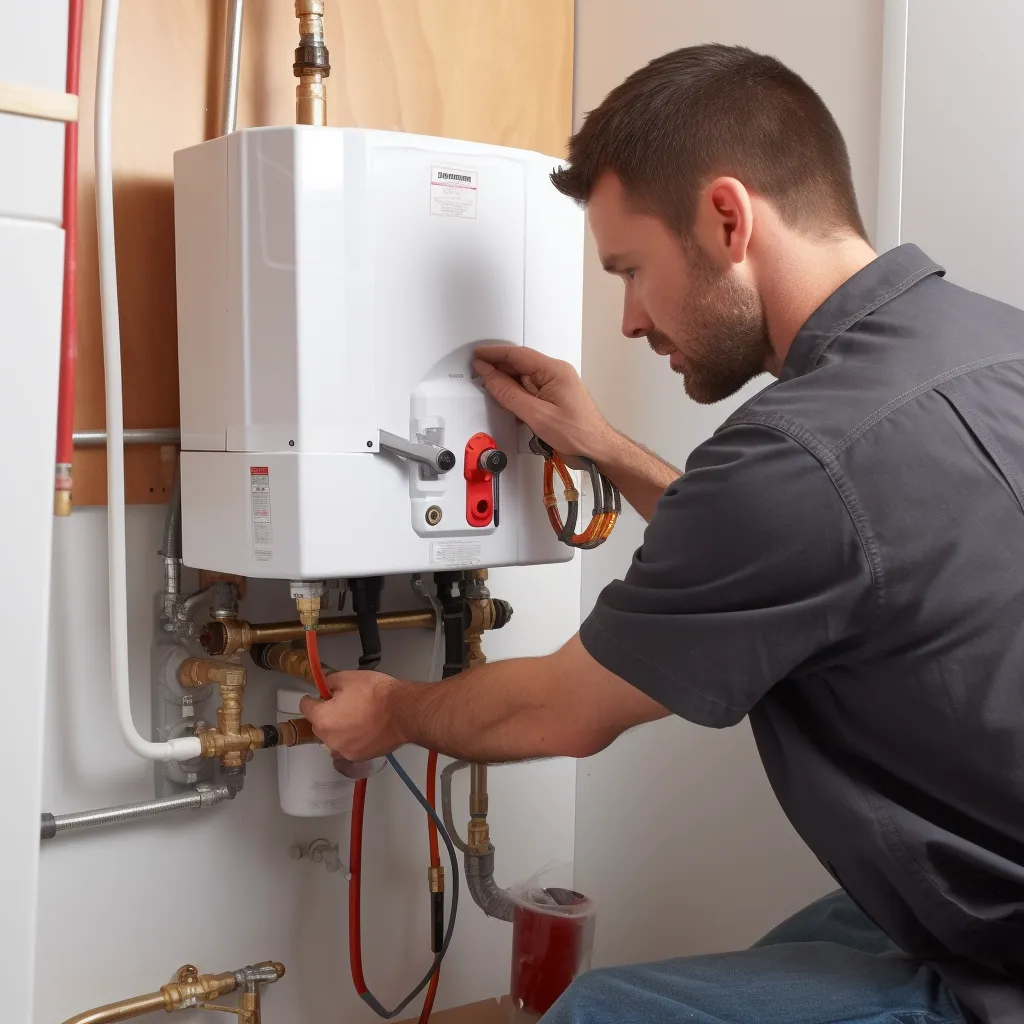
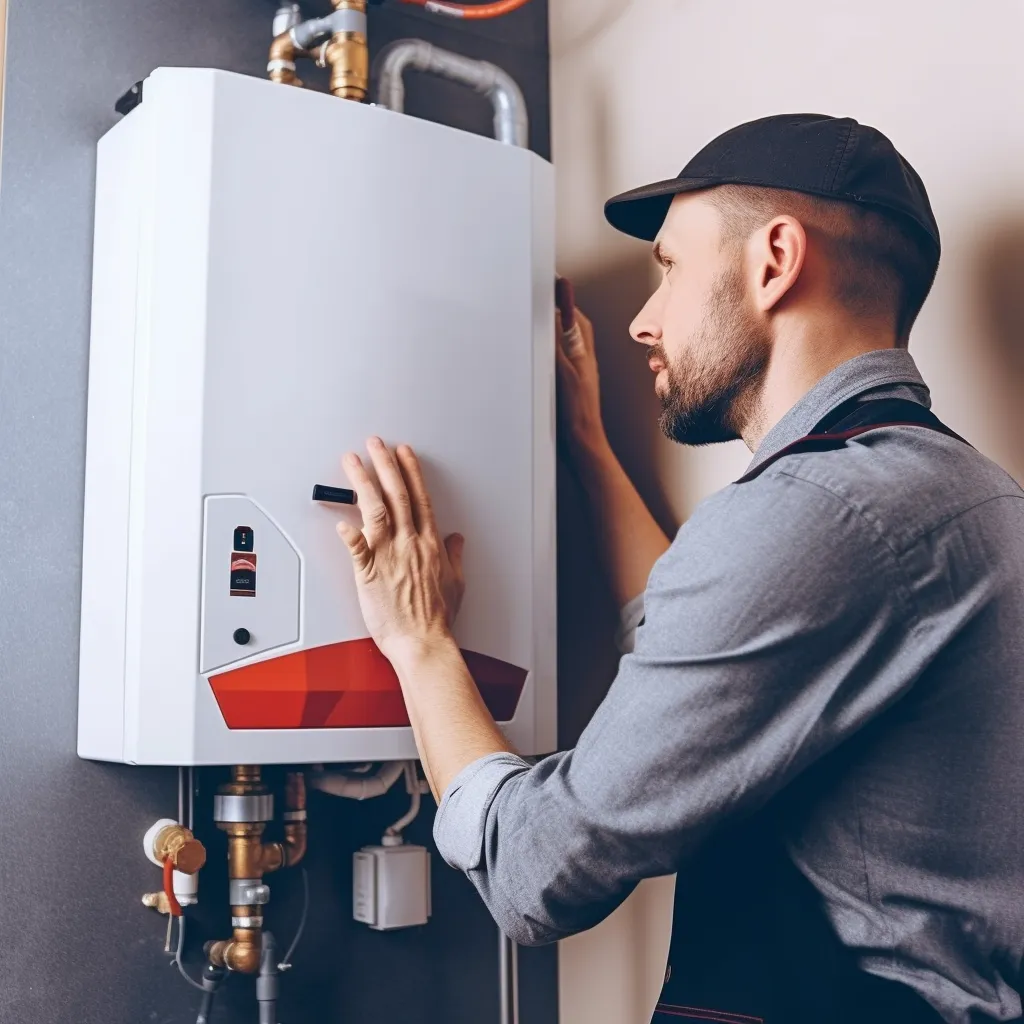
Keep the temperature at 120 degrees F
Keeping the temperature of your water heater at 120 degrees Fahrenheit offers several benefits. Firstly, setting the temperature at 120 degrees F helps to prevent scalding accidents. Water that is hotter than this can be extremely dangerous, particularly if you have children or elderly individuals in your household. By maintaining a lower temperature, you minimize the risk of accidental burns. In addition to safety concerns, setting your water heater to 120 degrees F can also save you money on energy bills. Higher water temperatures lead to increased energy consumption, as the water heater has to work harder to maintain the desired temperature. By keeping the temperature at 120 degrees F, you can achieve a comfortable hot water supply while reducing energy waste. Moreover, setting the temperature at 120 degrees F helps extend the lifespan of your water heater. Higher temperatures accelerate the buildup of sediment and mineral deposits, resulting in more frequent maintenance and decreased efficiency. By keeping the temperature lower, you can minimize these issues and potentially extend the lifespan of your water heater.

Check the anode rod on a regular basis for corrosion
One important aspect of water heater maintenance is checking the anode rod for corrosion regularly. This simple yet vital task can ensure the longevity and efficiency of your water heater, saving you from expensive repairs or the hassle of a complete replacement. The anode rod is a sacrificial component inside your water heater that is designed to attract corrosive elements in the water supply, protecting the inner lining of the tank. Over time, the rod can become depleted or corroded, losing its effectiveness and leaving your water heater vulnerable to rust and deterioration. To check the condition of the anode rod, first, locate it on the top of your water heater. It is usually found near the cold water inlet or on top of the unit. Use a wrench to loosen the hex head, releasing the rod. Once removed, visually inspect the rod for signs of corrosion or significant wear. If the rod appears heavily corroded, it's time for a replacement.
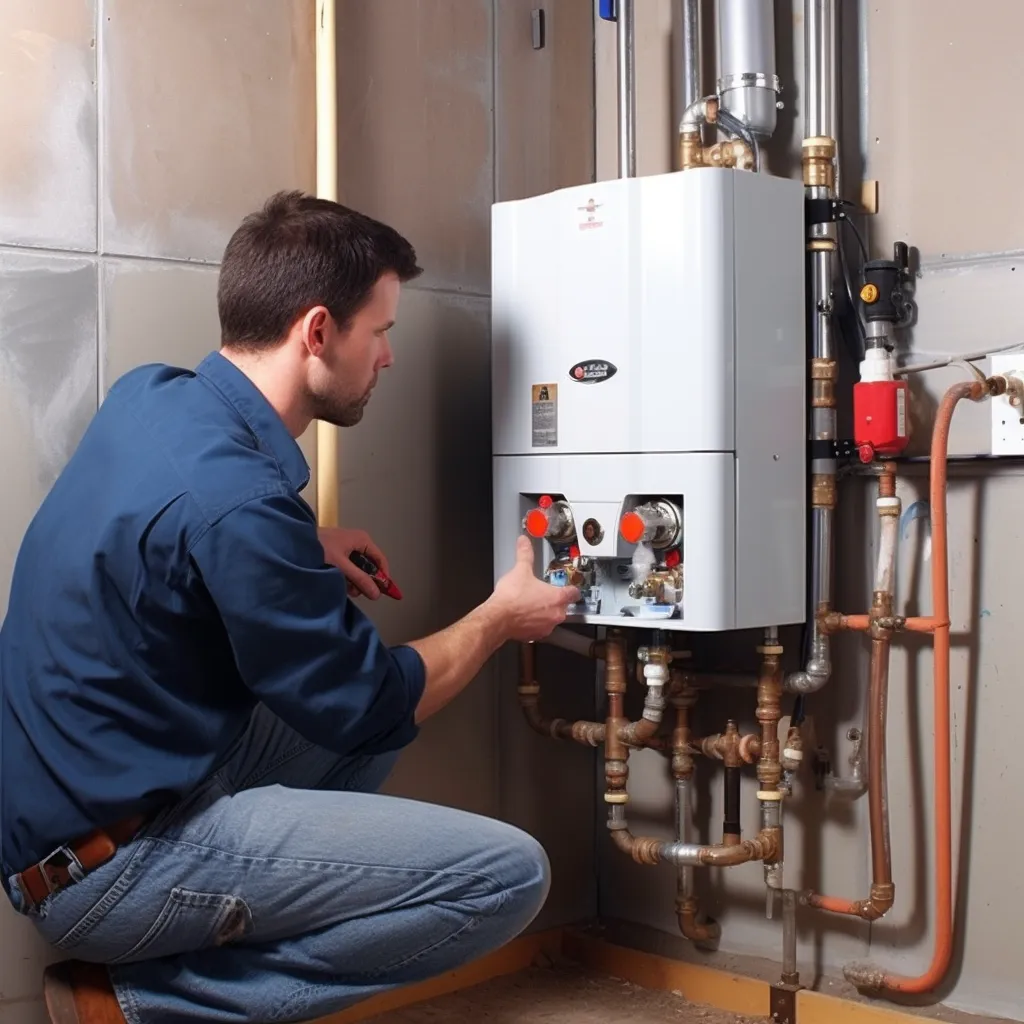
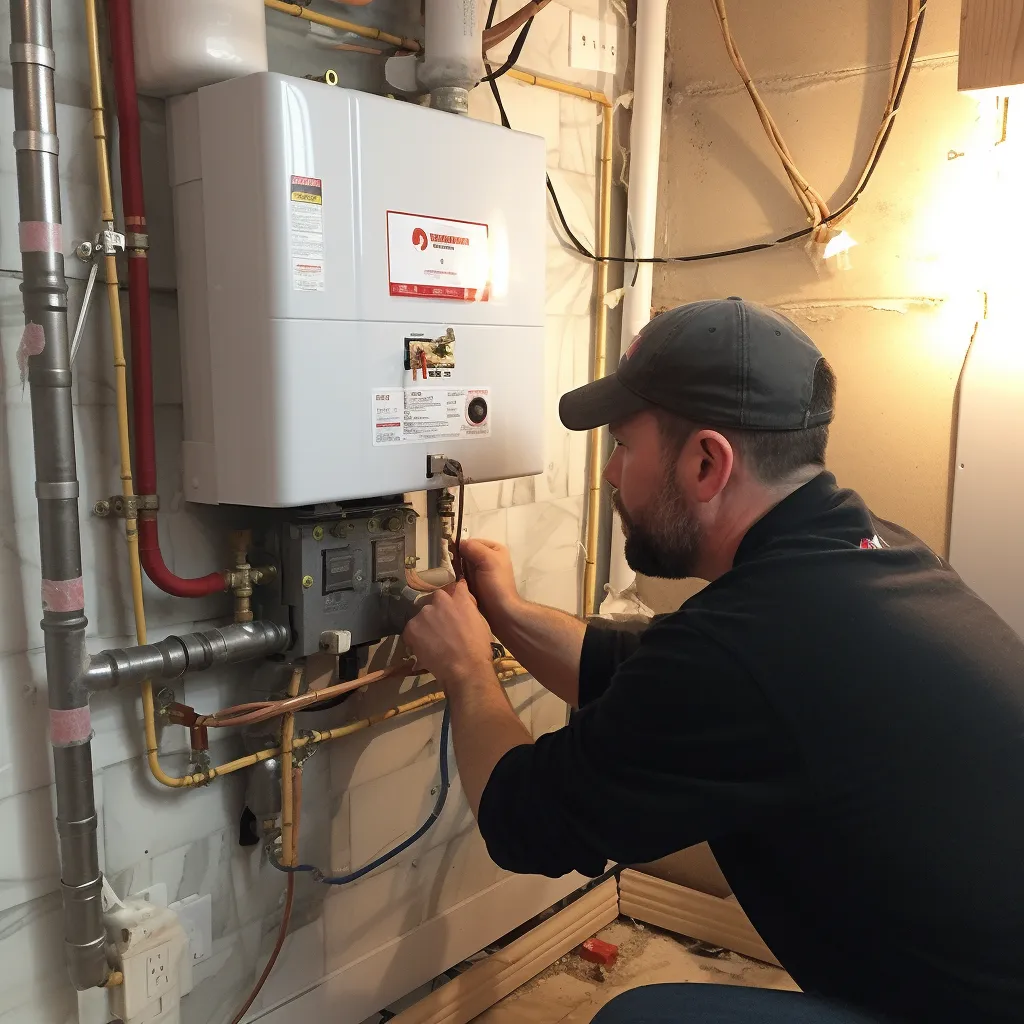
Ensure all the valves are working properly
Ensure that all valves are working properly. Valves play a crucial role in regulating the flow of water and controlling the temperature inside the water heater system. If any of the valves are faulty or damaged, it can impact the performance and efficiency of the new water heater. Before initiating the replacement process, it is recommended to thoroughly inspect each valve. Start by checking the main shut-off valve, which is responsible for cutting off the water supply to the entire house. Ensure that it opens and closes smoothly, without any leaks or obstructions. Next, examine the pressure relief valve, which is designed to release excess pressure inside the water heater tank. Test the valve by lifting its lever and allowing water to flow out. Verify that the valve closes back tightly and does not continue to drip after releasing the lever. Additionally, take a look at the drain valve, which is typically located at the bottom of the tank. The drain valve is used for emptying the water heater or removing sediment buildup. Confirm that the valve operates smoothly and doesn't leak when opened or closed.

Make sure water heater connections are tight, secure, and leak-free
Make sure all the connections are tight, secure, and leak-free. This is essential to guarantee the optimal performance and longevity of your new water heater. During the replacement process, it is important to thoroughly inspect all connections, including the water supply lines, gas lines, and electrical connections. Make sure that these connections are properly tightened to avoid any potential leaks or malfunctions. Leaky connections can lead to significant water damage and energy waste. Therefore, it is advisable to enlist the services of a professional plumber who specializes in water heater replacement in West Monroe. These experts have the knowledge and experience to identify and rectify any faulty connections, ensuring that your new water heater operates safely and efficiently.
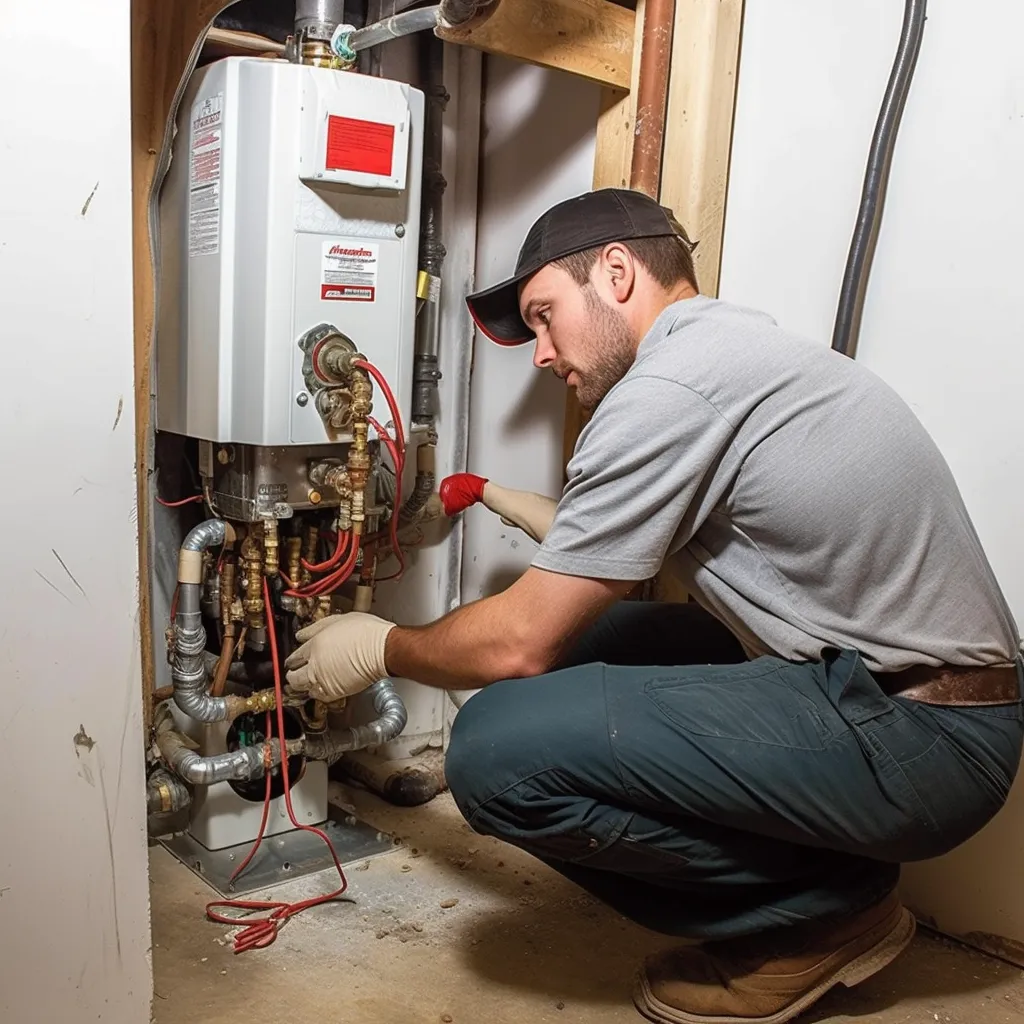
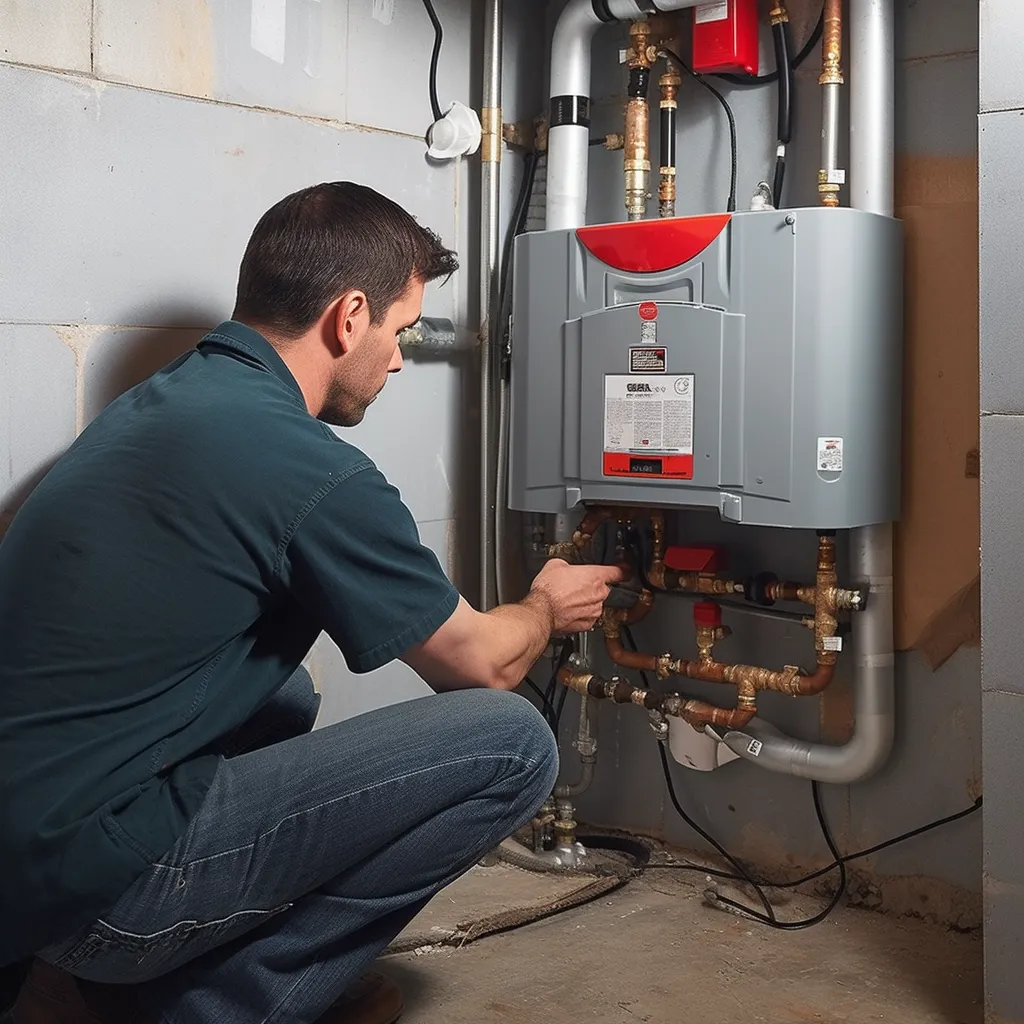
Insulate pipes to cut down on heat loss
One essential aspect of maintaining an efficient water heating system is insulating the pipes to reduce heat loss. By insulating the pipes, homeowners can experience several benefits, including energy savings and improved performance. Insulating the pipes is a simple but effective way to conserve heat and reduce energy consumption. When hot water passes through uninsulated pipes, it tends to lose heat as it travels to its destination. This results in wasted energy and can even lead to increased energy bills. However, by insulating the pipes, heat loss is minimized, allowing hot water to retain its temperature for longer periods. Furthermore, insulating pipes can also help improve the overall performance of the water heating system. Insulation acts as a barrier, preventing heat from escaping and cold air from entering the pipes. This ensures that the water stays hot throughout the distribution process, providing a constant supply of warm water when needed. As a result, homeowners can enjoy better efficiency and a more consistent flow of hot water without interruptions. Additionally, insulating the pipes can prevent potential issues caused by freezing temperatures. In West Monroe, where winters can be chilly, uninsulated pipes are susceptible to freezing. When water freezes inside the pipes, it can cause them to burst, leading to costly repairs and water damage. Insulation provides an extra layer of protection, keeping the pipes warm and reducing the risk of freezing.
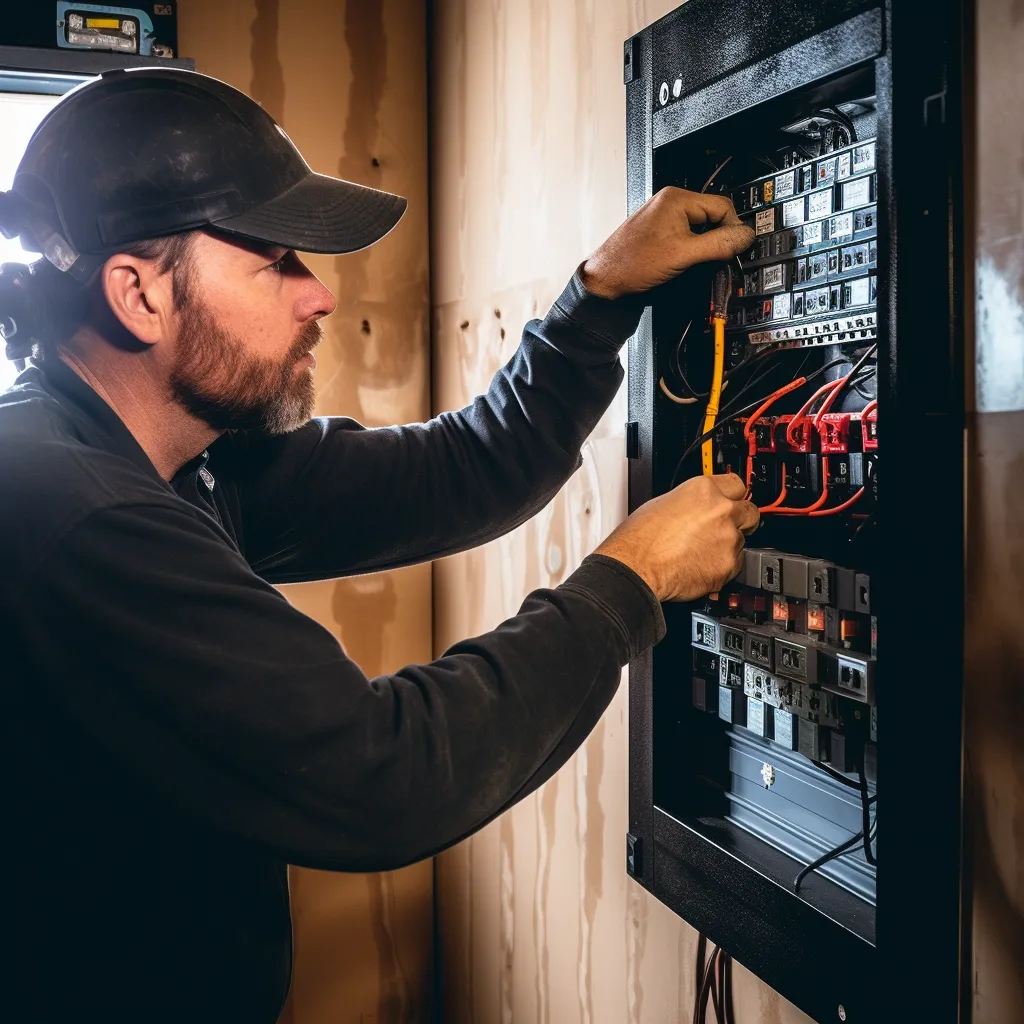
Inspect heating elements
Inspect the heating elements. The heating elements are responsible for heating the water inside the tank, so it's essential to ensure they are working correctly. During a water heater replacement, a professional plumber will thoroughly inspect the heating elements to determine their condition. They will visually examine the elements for any signs of wear, damage, or corrosion. Additionally, they will use specialized tools to measure the electrical resistance and test the functionality of the elements. If any issues are detected with the heating elements, such as a significant decrease in performance or a complete failure, they will need to be replaced. Depending on the specific type of water heater, the replacement process may involve draining the tank, disconnecting the electrical wiring, and removing the old elements.
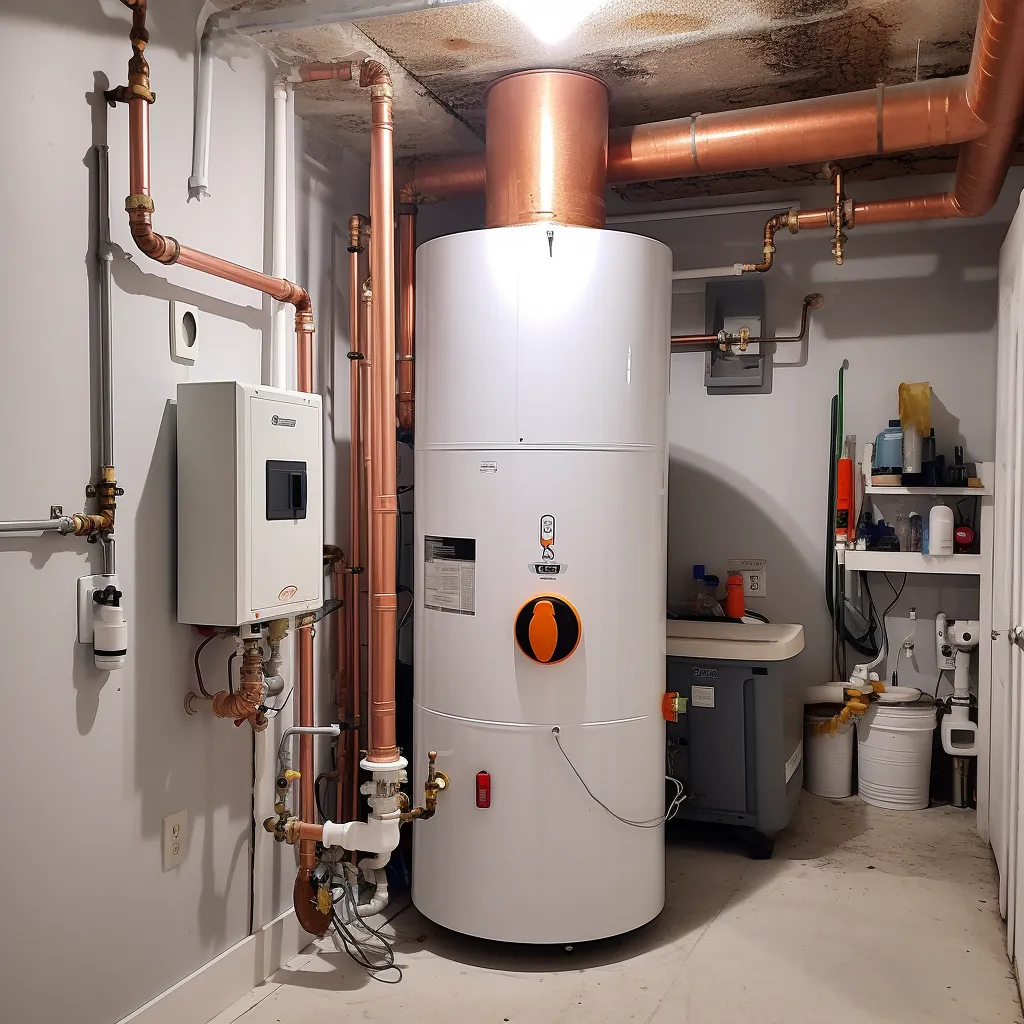
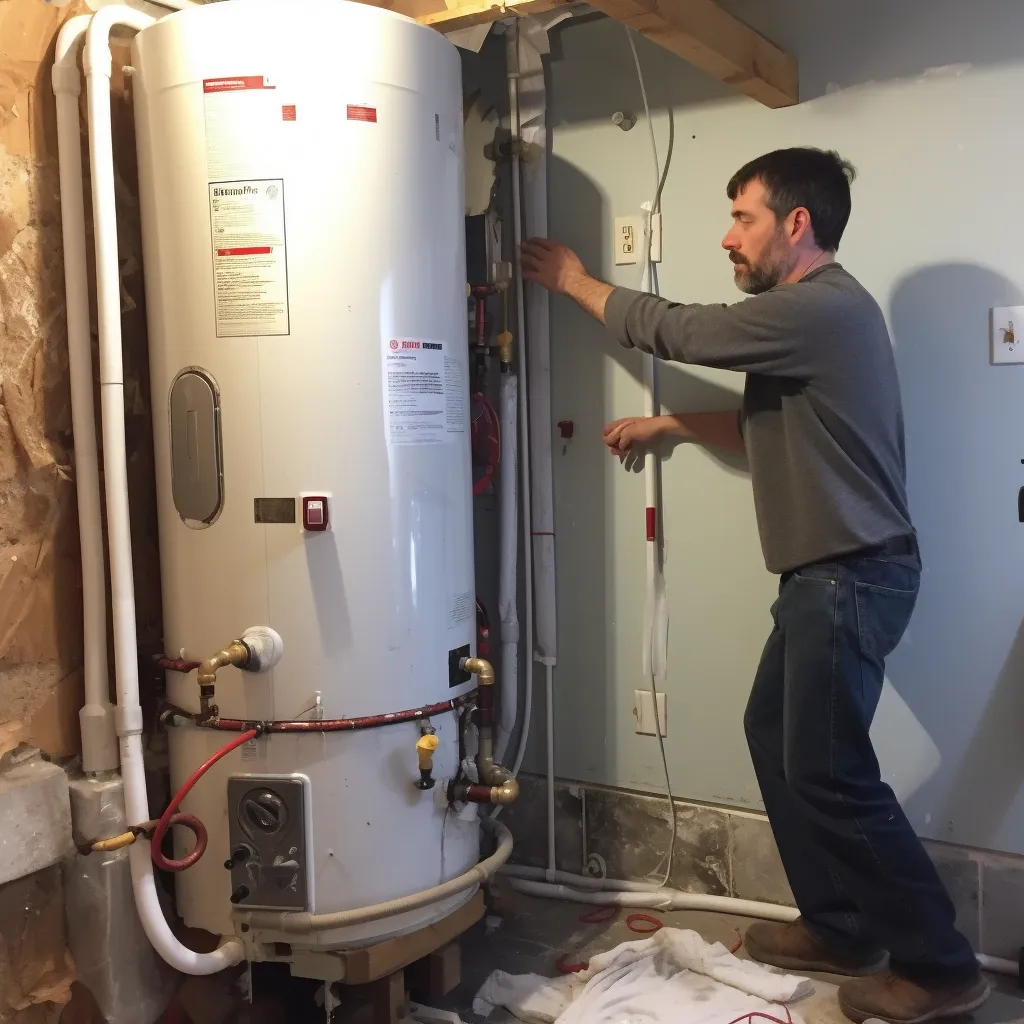
Ventilate the area around your water heater for best performance
When it comes to optimal performance, Proper ventilation is key for your water heater in West Monroe. Ensuring that the area around your water heater is well-ventilated not only helps maintain the efficiency of your unit but also promotes safety. Proper ventilation allows for the smooth flow of air, preventing any potential buildup of harmful gases such as carbon monoxide. This is especially important in enclosed spaces or basements where the concentration of such gases can pose a serious health risk. Additionally, well-ventilated spaces help regulate the temperature around the water heater, preventing overheating and promoting more efficient operation. Adequate airflow also reduces the chances of moisture buildup, which can lead to corrosion and damage to your unit. By prioritizing proper ventilation for your water heater replacement in West Monroe, you can enjoy optimal performance, improved energy efficiency, and peace of mind knowing that your unit operates safely.

Drain and clean the tank annually
To ensure the optimal performance and longevity of your water heater, it is essential to include drain and clean maintenance as part of your annual routine. By adhering to this simple yet crucial step, you can prevent sediment buildup, enhance energy efficiency, and potentially extend the lifespan of your water heater. If you reside in West Monroe and are in need of water heater replacement services, our expert technicians can help you with professional assistance.

Ensure connections are tight and replace any parts that are worn
Ensure that all connections are tight and secured. Loose connections can lead to leaks and potential damage to your property. Before replacing any parts, it's important to thoroughly inspect the water heater to identify any worn-out components. Start by checking all the connections, such as the inlet and outlet pipes, as well as the electrical connections. Make sure they are properly tightened and secure. If you notice any signs of corrosion or damage, replace the respective parts immediately. Next, thoroughly examine the water heater for any worn-out parts. This may include elements such as the heating element, thermostat, pressure relief valve, or the anode rod. If any of these components show signs of wear, it's recommended to replace them to ensure the optimal performance and longevity of your water heater. Before proceeding with any replacements, always remember to turn off the power supply to the water heater and shut off the water source to avoid any accidents. It's advisable to consult a professional plumber who specializes in water heater replacement to ensure proper installation and compatibility of the new parts.
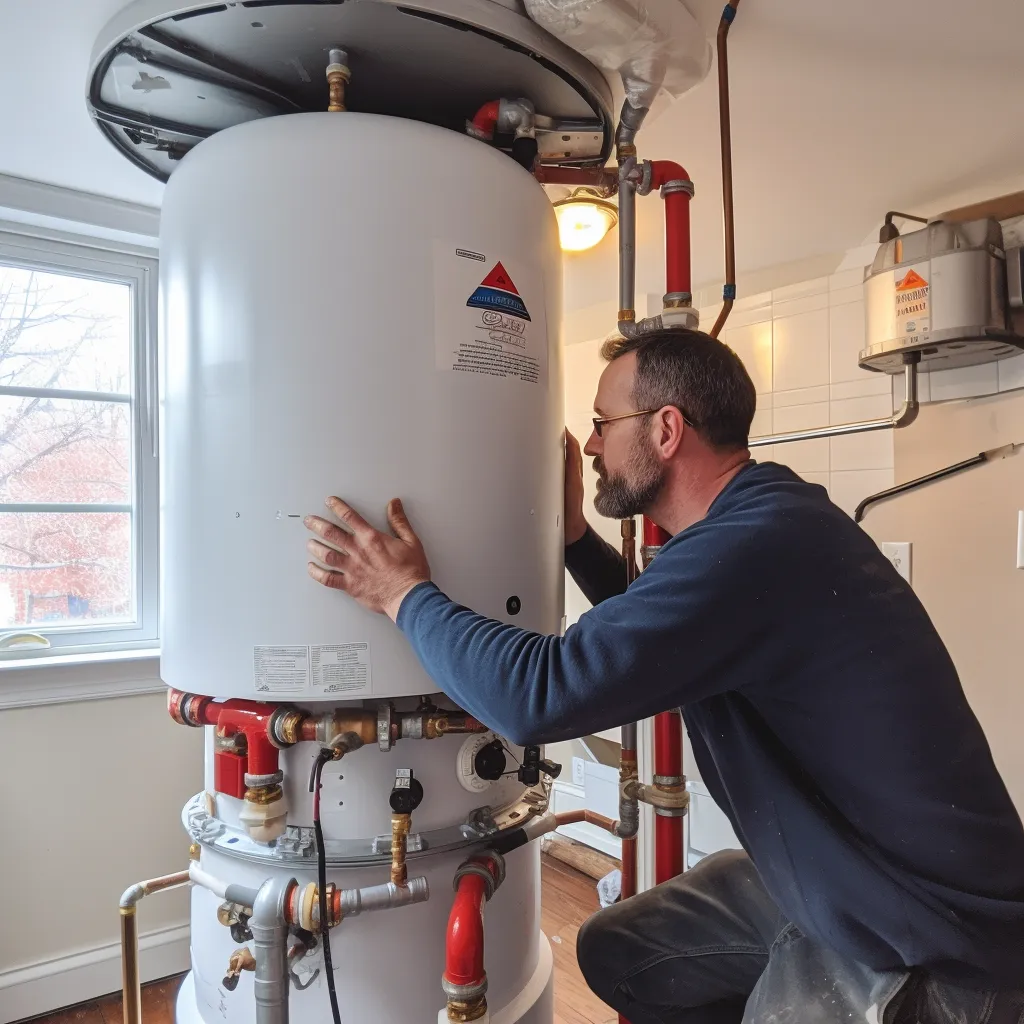
Have a professional inspect and service your water heater every two years
To ensure optimal performance and extend the lifespan of your water heater, it is recommended to have a professional inspect and service it every two years. This proactive approach can help prevent potential issues and unexpected breakdowns, ultimately saving you time, money, and inconvenience. For residents in West Monroe, finding a reliable water heater replacement service is essential. With the constant use and demands placed on these appliances, regular maintenance becomes even more crucial. By entrusting your water heater to a trained professional in West Monroe, you can have peace of mind knowing that they have the knowledge and expertise to identify any potential problems and provide the necessary solutions. During a routine inspection and service, the technician will thoroughly evaluate your water heater, checking for any signs of wear and tear, leaks, or inefficiencies. They will also clean and flush the tank, remove sediment buildup, and ensure that all components are operating smoothly. Additionally, the technician will analyze the overall condition of the water heater, including the anode rod, heating elements, pressure relief valve, and thermostat, making any necessary adjustments or replacements as required.

What to look for in a licensed plumber

When it comes to tackling plumbing issues, finding a licensed plumber is crucial. Whether you need water heater replacement in West Monroe or any other plumbing service, hiring the right professional is key. To ensure that you make an informed decision, here are a few things to look for in a licensed plumber:
and licensed professional for water heater installation and repairs. There are several crucial factors to consider when determining the right professional for the job:
Valid License: The first and foremost thing to check is whether the plumber holds a valid license. This ensures that they have undergone the necessary training and have met the required standards set by the plumbing industry. A licensed plumber indicates expertise and professionalism, giving you peace of mind that your project will be handled correctly.
Experience: While licensing is important, experience also plays a significant role. Look for a plumber who has been in the industry for a considerable amount of time. An experienced plumber will have dealt with a variety of plumbing issues, including water heater replacement, and will be well-equipped to handle any challenges that may arise during the job.
Reputation: Reputation speaks volumes about the quality of service a plumber provides. Check online reviews, ask for referrals from friends, family, or neighbors, and see what others have to say about their experiences with the plumber. A reputable plumber will have positive feedback and a track record of satisfied customers.
Insurance Coverage: Plumbing work can be complex, and accidents can happen unexpectedly. Therefore, it is essential to ensure that the plumber you hire carries adequate insurance coverage. This protects you from liability in case of any property damage or injuries that may occur while the plumber is working on your water heater replacement project.
Fair Pricing: While cost shouldn't be the sole determining factor, it is essential to find a plumber who offers fair pricing. Beware of significantly low-cost services, as they may be an indication of subpar workmanship or the use of inferior parts. A reliable plumber will provide transparent pricing, including a detailed breakdown of the costs associated with the water heater replacement.
Emergency Services: Plumbing emergencies can arise at any time, so it's crucial to find a plumber who offers emergency services. Knowing that you can rely on your plumber to promptly respond to urgent situations can provide peace of mind when it comes to water heater replacements or any other plumbing issues.
Finding a licensed plumber for your water heater services involves checking their licensing, experience, reputation, insurance coverage, fair pricing, and availability for emergency services. By carefully considering these factors, you can ensure that you hire a reliable and trustworthy plumber to handle your plumbing needs.
Contact Us
GET IN FULL TOUCH
PHONE: (318) 933-7010
EMAIL:
shane@waterheaterwestmonroe.com
Shane Wright Plumbing
West Monroe, LA 71292
